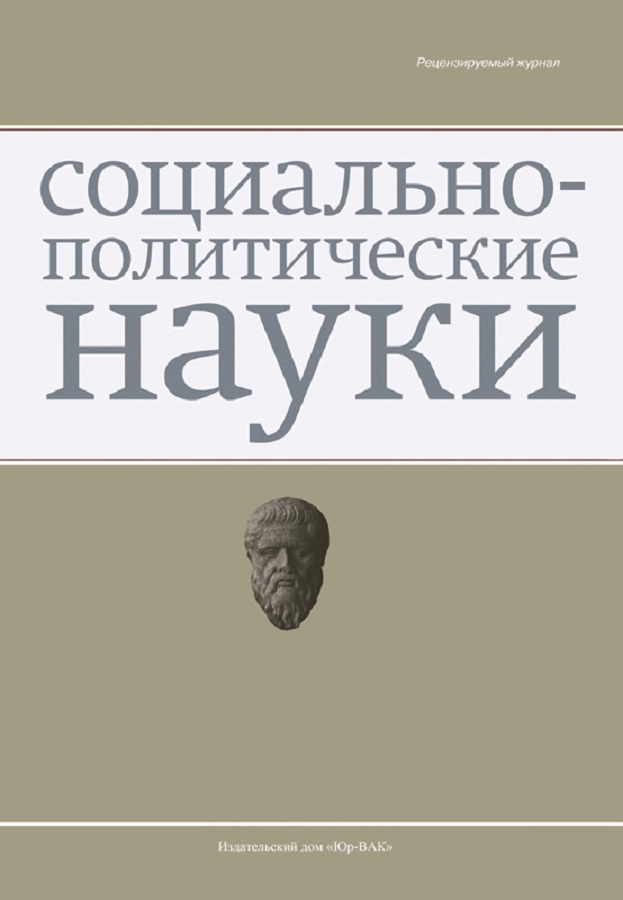Russia 2020: Industry 4.0 and Sustainable Development Issues
- 作者: Kuriukin A.N.1
-
隶属关系:
- Institute of Sociology – Branch of the Federal Center of Theoretical and Applied Sociology of the Russian Academy of Sciences
- 期: 卷 13, 编号 4 (2023)
- 页面: 65-73
- 栏目: Public and Regional Politics
- URL: https://journals.eco-vector.com/2223-0092/article/view/583438
- DOI: https://doi.org/10.33693/2223-0092-2023-13-4-65-73
- ID: 583438
如何引用文章
详细
In the article, the author considers the question of the relationship between the integration of innovations, united by the concept of Industry 4.0, and the concept of sustainable development, which in modern conditions of civilizational turbulence continues to be in the foreground. Taking as a basis the basic components of the sustainable development paradigm – the economy, society and ecology, the author examines the impact on them of basic innovations generated on technologies that make up the essence of Industry 4.0 – big data, artificial intelligence, the Internet of things, Internet services, cyber-physical systems. The results of the analysis show that there are ultimately two basic scenarios that can be formed on the basis of scientific discourse: an optimistic one, whose supporters tend to see only positive features of accelerating the development of the economy and society of modern civilization, thanks to the introduction of innovations, and a pessimistic one, whose supporters point to the likelihood of social and environmental shocks that can be expressed in a significant, and possibly almost complete restructuring of modern social reality, leading to the disappearance of entire professions, the transition of huge masses of the population at the world level to the poverty line, a radical transformation of social interaction practices and the “fabric” of social reality at all. The author advocates the so-called balanced approach, which is applied in this work.
全文:
作者简介
Andrey Kuriukin
Institute of Sociology – Branch of the Federal Center of Theoretical and Applied Sociology of the Russian Academy of Sciences
编辑信件的主要联系方式.
Email: kuriukin@inbox.ru
ORCID iD: 0000-0002-9572-3070
candidate of political sciences, senior researcher
俄罗斯联邦, Moscow参考
- Kuriukin A.N. Russia in the 2020s: Economics and law facing challenges Industry 4.0. Economic Problems and Legal Practice. 2022. Vol. 18. No. 4. Pp. 162–168. (In Rus.) doi: 10.33693/2541-8025-2022-18-4-162-168
- Ajwani-Ramchandani R., Figueira S., Torres de Oliveira R., Jha S. Enhancing the circular and modified linear economy: The importance of blockchain for developing economies. Resour. Conserv. Recycl. 2021. No. 168. Pp. 105–118.
- Bai C., Dallasega P., Orzes G., Sarkis J. Industry 4.0 technologies assessment: A sustainability perspective. Int. J. Prod. Econ. 2020. No. 229. Pp. 107–116.
- Bonilla S.H., Silva H.R., Terra da Silva M. et al. Industry 4.0 and sustainability implications: A scenario-based analysis of the impacts and challenges. Sustainability. 2018. No. 10 (10). Pp. 37–49.
- Borowski P.F. Digitization, digital twins, blockchain, and Industry 4.0 as elements of management process in enterprises in the energy sector. Energies. 2021. No. 14 (7). Pp. 78–85.
- Ching N.T., Ghobakhloo M., Iranmanesh M. et al. Industry 4.0 applications for sustainable manufacturing: A systematic literature review and a roadmap to sustainable development. J. Clean. Prod. 2022. Pp. 113–133.
- Costa J., Matias J.C. Open innovation 4.0 as an enhancer of sustainable innovation ecosystems. Sustainability. 2020. No. 12 (19). Pp. 81–92.
- Kahn K.B. Understanding innovation. Bus. Horiz. 2018. No. 61 (3). Pp. 453–460.
- Khan I.S., Ahmad M.O., Majava J. Industry 4.0 and sustainable development: a systematic mapping of triple bottom line, circular economy and sustainable business models perspectives. J. Clean. Prod. 2021. No. 297. Pp. 126–155.
- Kurniawan T.A., Othman M.H.D., Hwang G.H., Gikas P. Unlocking digital technologies for waste recycling in Industry 4.0 era: A transformation towards a digitalization-based circular economy in Indonesia. J. Clean. Prod. 2022. No. 357. Pp. 131–141.
- Lee C.C., Qin S., Li Y. Does industrial robot application promote green technology innovation in the manufacturing industry? Technol. Forecast. Soc. Change. 2022. No. 183. Pp. 121–133.
- Ondov M., Rosova A., Sofranko M. et al. Redesigning the production process using simulation for sustainable development of the enterprise. Sustainability. 2022. No. 14 (3). Pp. 15–24.
- Park J., Bae H. Big data and AI for process innovation in the Industry 4.0 era. Appl. Sci. 2022. No. 12 (13). Pp. 63–76.
- Priarone P.C., Campatelli G., Catalano A.R., Baffa F. Life-cycle energy and carbon saving potential of Wire Arc Additive Manufacturing for the repair of mold inserts. CIRP J. Manufac. Sci. Technol. 2021. No. 35. Pp. 943–958.
- Ramadan M., Amer T., Salah B., Ruzayqat M. The impact of integration of Industry 4.0 and internal organizational forces on sustaining competitive advantages and achieving strategic objectives. Sustainability. 2022. No. 14 (10). Pp. 41–58.
补充文件








